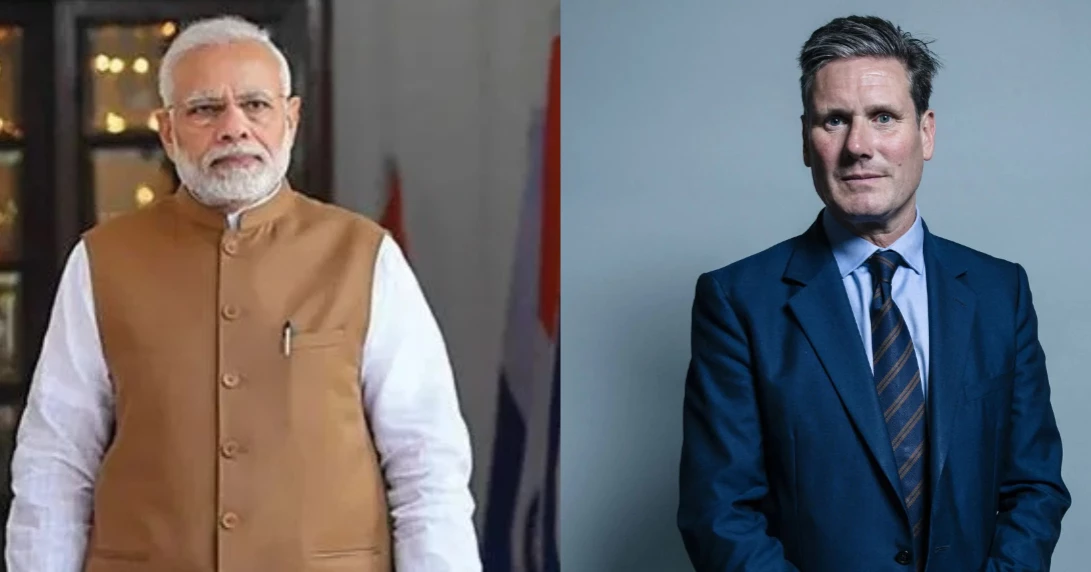The United Kingdom and India on Tuesday signed a landmark free trade agreement, slashing tariffs on a wide range of goods — from Scotch whisky and English gin exported to India to Indian spices, textiles and food products shipped to the UK — after more than three years of protracted negotiations.
British Prime Minister Keir Starmer hailed the agreement as a “landmark,” describing it as the biggest trade deal the UK has signed since leaving the European Union in 2020. “It’s the most ambitious trade deal that India has ever done,” he added.
Indian Prime Minister Narendra Modi echoed the sentiment, calling the pact “ambitious and mutually beneficial” in a post on X (formerly Twitter). He said the deal would unlock new opportunities for both nations to jointly develop goods and services for global markets.
The agreement was reached following a tough negotiating process that began in early 2022 under then-Prime Minister Boris Johnson, who famously promised to finalise the deal by Diwali that year. However, political transitions in both countries — general elections in 2024 that returned Modi to power in India and brought the Labour Party to office in Britain — delayed its conclusion.
Under the deal, India will gradually lower import duties on a wide range of British products. Tariffs on Scotch whisky and English gin — currently at 150 per cent — will be reduced to 75 per cent immediately, with a further cut to 40 per cent by year ten. British cars, cosmetics, medical devices, lamb and aircraft parts will also see significant tariff reductions, with automotive tariffs dropping from more than 100 per cent to just 10 per cent under a quota system.
India’s Trade Ministry said the deal ensures that 99 per cent of Indian exports to the UK will face no import duties. Covered sectors include textiles, leather goods, marine products, footwear, toys, gems and jewellery.
“This brings us closer to our goal of becoming a global economic powerhouse. It protects our core interests while opening doors to India’s greater participation in global value chains,” said India’s Trade Minister Piyush Goyal.
The UK estimates the deal will boost bilateral trade by £25.5 billion ($34 billion) annually from 2040 and contribute nearly £5 billion ($6.7 billion) to its economy each year.
Industry bodies welcomed the agreement. Mark Kent, chief executive of the Scotch Whisky Association, called it “transformational” and noted that India — the world’s largest whisky market — could increase imports of Scotch whisky by £1 billion over the next five years.
The issue of mobility and visas was among the final sticking points. The UK government, facing political pressure to reduce immigration, clarified that the trade pact makes only “modest changes to business mobility” and has “no impact on the immigration system.”
However, the agreement includes new visa provisions allowing Indian musicians, chefs and yoga instructors to work in the UK. It also provides a three-year exemption from social security contributions for Indian professionals working in Britain, with reciprocal arrangements for British workers in India.
Rain Newton-Smith, chief executive of the Confederation of British Industry (CBI), described the agreement as a “beacon of hope amidst the spectre of protectionism,” noting the significance of a deal between the world’s fifth- and sixth-largest economies.
Modi and Starmer, who spoke by phone on Tuesday, affirmed their commitment to stronger bilateral ties. Modi extended an invitation to Starmer to visit India, and the UK prime minister’s office confirmed he intends to make the trip “at the earliest opportunity.”


